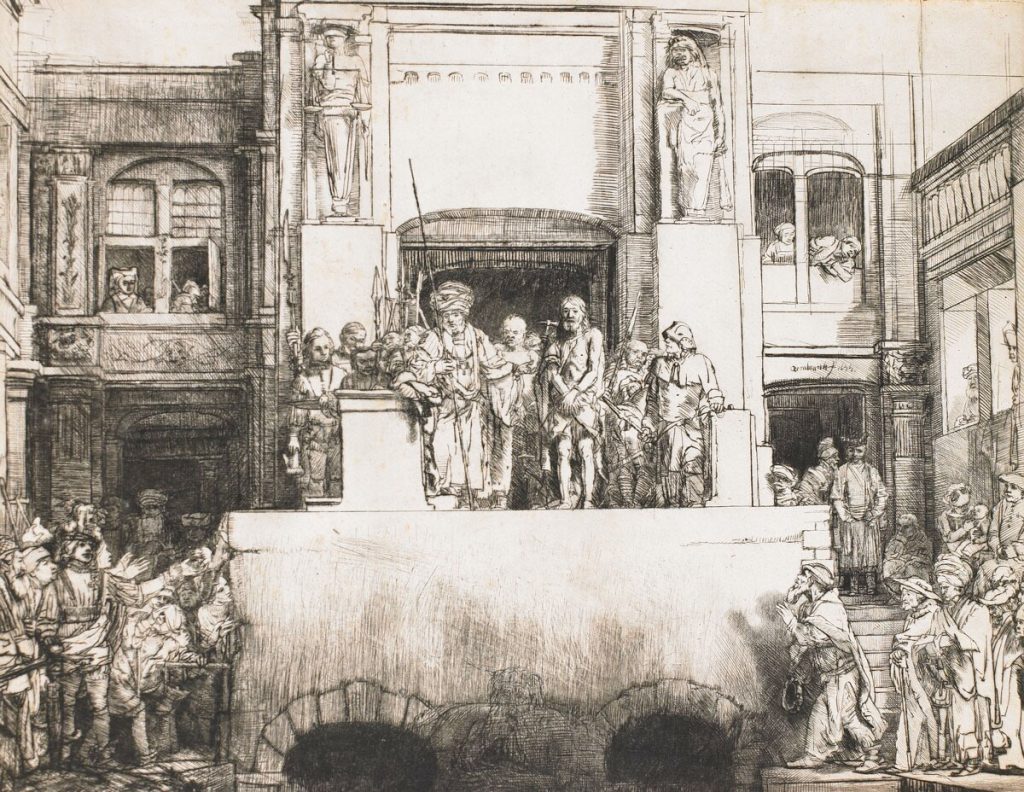God’s Plans (Not Ours)

Rembrandt, Public domain, via Wikimedia Commons
by Joel D. Heck
One of the key figures from secular history, whose role in the crucifixion of Jesus is recorded in the Gospels, the only Gentile whose name appears in two of the three ecumenical creeds, is Pontius Pilate. The Gospels present Pilate as well versed in Roman law, intelligent, but expedient.
When the Jews brought Jesus to him for interrogation and sentencing (since the Jews did not have the right to execute anyone, John 18:31), Pilate knew that this had to be a setup. He also knew that Jesus was innocent of any violation of Roman law, so he attempted to release Jesus. But something happened that caused Pilate to choose between his future and justice. He chose his future.
Just two years earlier, Lucius Aelius Sejanus had been executed in Rome for a plot against those who were aligned with the Roman Emperor Tiberius. Sejanus had been the leader of the Praetorian Guard, which was the bodyguard that protected the emperor. That meant that Sejanus had significant power and ready access to key leaders and was, therefore, capable of plotting against those who opposed him. Eventually his plan to achieve complete power in Rome, at the expense of the emperor, was discovered, and Sejanus was arrested and executed, along with others involved in the plot.
When the Jews feared that Pilate was about to release Jesus (John 19:12a), they shouted, “If you let this man go, you are no friend of Caesar” (John 19:12b). Sejanus had not been a friend of Caesar, but had plotted to centralize power around himself. He nearly succeeded.
Pilate was a friend of Sejanus and had actually been nominated by Sejanus for his governorship in Judea. If word got back to Rome that Pilate was a “friend of Caesar,” his governorship, even his life, would soon be over. Sejanus had been executed in 31 A.D., and Jesus was on trial in 33 A.D.
The Jews apparently knew about Pilate’s friendship with Sejanus and seemingly threatened to send word about that friendship to Rome. Pilate realized that he was in a difficult spot, whether he released Jesus or decreed His execution. He had to choose between justice and his future. He decided to compromise his understanding of justice and Roman law and handed Jesus over to be crucified.
We can easily think that our plans, or the plans of others, will carry the day over the plans of God. But God’s plans supersede human plans, even though “the nations conspire and the peoples plot” against the Lord and His Anointed One (Psalm 2:1-2).
As we draw close to the Suffering Servant this Lenten season, let us remember that God always accomplishes His plans, especially His plan to provide our salvation, and the salvation of others, in the sacrifice of His Son Jesus.
—————
Rev. Dr. Joel D. Heck is Interim President of Concordia Lutheran Seminary in Edmonton. This article previously appeared in the Texas District Supplement to Lutheran Witness (March 2020).




